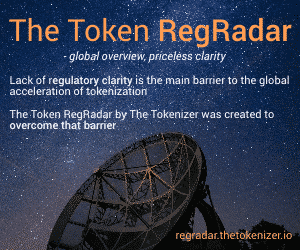Power Transition incorporates with Hedera Token Service to Radically Evolve the Energy Sector
The recent incorporation of the Hedera Token Service (HTS) into Power Transition’s Digital Energy Platform (DEP) allows the rapid adoption and deployment of Dapps across any national energy-grid infrastructure, where instantly meeting local value-exchange requirements and standards had not been possible before
Power Transition Ltd, a leader in distributed ledger technology (DLT) based digital energy platforms, today announced that it has integrated the power of the new Hedera Token Service (HTS) to deliver instant energy sector trading and value exchange. HTS is a new service that offers the ability to issue and configure tokens on the Hedera network, taking full advantage of the network’s outstanding performance, security, stability, and governance. HTS offers a faster and more efficient alternative to smart contract token creation.
“HTS greatly enhances our speed to market by enabling customisable and stable value transfer capabilities,” said Jiro Olcott, Power Transition CTO. “With HTS we are now able to quickly localise our energy trading Dapps for any customer, regardless of which country or currency they operate in.”
Power Transition has launched that latest update to DEP, which enables supply chain participants to track and trade electricity and help rapidly balance the use of power in a decentralised renewable energy grid at low cost and with minimal carbon impact. Leveraging the Hedera Consensus Service (HCS) and mirror nodes, Power Transition has incorporated HTS as fiat currency-linked Energy Tokens. This has transformed the way customers can transfer electricity and other forms of value across the energy sector. HTS has simplified operations and reduced risk exposures while boosting the company’s ability to quickly localise its Dapps to international markets.
“Power Transition is one of Hedera Hashgraph’s early adopters, and since the first version of our TestNet they have worked successfully with our developer advocate team to test and assure Hedera DLT functionality as their services were being rolled out,” said Christian Hasker, CMO of Hedera. “They have been quick to spot the advantages of HTS and are incorporating it into their suite of energy industry Dapps.”
Tokens created using HTS inherit many of the characteristics of hbar, including asynchronous byzantine fault tolerant (ABFT) consensus, world-class governance, and thousands of transactions per second with finality — in addition to predictable, low fees. HTS offers the ability for anyone to create and use stablecoins, utility tokens, and more, issued on the Hedera platform by creating a Hedera Hashgraph account.
About Power Transition
Power Transition incorporated in 2018, Power Transition are the leaders in 3rd generation DLT-based digital energy platform design and development. Their suite of Dapps supports a common operating framework for energy sector trading and value exchange, from microgrids and electric vehicles to national networks. Powered by Hedera Hashgraph, the company aspires to provide the Trust Layer of the Digital Energy Economy, worldwide.
About Hedera
Hedera is a decentralized enterprise-grade public network on which anyone can build secure, fair applications with near real-time finality. The platform is owned and governed by a council of the world’s leading organizations including Avery Dennison, Boeing, Dentons, Deutsche Telekom, DLA Piper, eftpos, FIS (WorldPay), Google, IBM, LG Electronics, Magalu, Nomura, Swirlds, Tata Communications, University College London (UCL), Wipro, and Zain Group.
Photo by Lukas Bato on Unsplash
More Articles:
Akemona and Tritaurian Announce Partnership to Cooperate on Digital Securities Platform
flovtec confirms Strategic Growth Path of Digital Asset Ecosystem
You Might also Like















